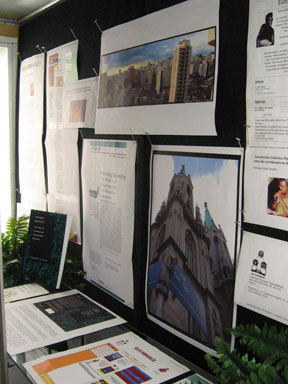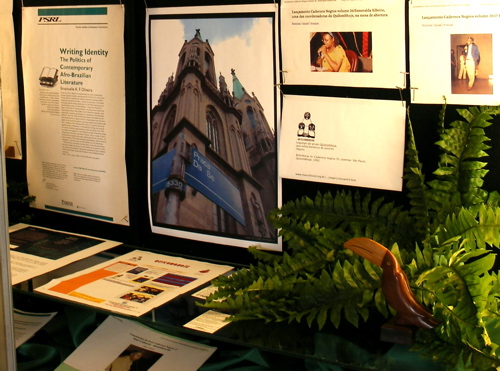Writing Identity: The Politics of Contemporary Afro-Brazilian Literature
Emanuelle K.F. Oliveira
In the late 1970s, Brazil was experiencing the return to democracy through a gradual political opening and the rebirth of its civil society. Writing Identity examines the intricate connections between artistic production and political action. It centers on the politics of the black movement and the literary production of a São Paulo-based group of Afro-Brazilian writers, the Quilombhoje. Using Pierre Bourdieu’s theory of the field of cultural production, the study explores the relationship between black writers and the Brazilian dominant canon, studying the reception and criticism of contemporary Afro-Brazilian literature. After the 1940s, the Brazilian literary field underwent several transformations. Literary criticism’s displacement from the newspapers to the universities placed a growing emphasis on aesthetics and style. Academic critics denounced the focus on a political and racial agenda as major weaknesses of Afro-Brazilian writing, and stressed the need for aesthetic experimentation. Writing Identity investigates how Afro-Brazilian writers maintained strong connections to the black movement in Brazil, and yet sought to fuse a social and racial agenda with more sophisticated literary practices. As active militants in the black movement, Quilombhoje authors strove to strengthen a collective sense of black identity for Afro-Brazilians.
Writing Identity constitutes the first work on Afro-Brazilian literature that considers the diverse social variables in the process of literary creation and reception. Taking into consideration these variables in the cultural field reveals their relations to the established power structures.
"This is a well-researched and well-written study. Oliveira looks at Afro-Brazilian literary and cultural production from several angles, a choice that allows her to present a sympathetic view of the cause while analyzing the struggles and oversights of the members of the organizations."—Maria José Somerlate Barbosa, University of Iowa
"... there is no doubt that Oliveira's provocative work builds upon, and significantly enriches, the study of Afro-Brazilian literary production." —Kátia da Costa Bezerra, Luso Brazilian Review 47.1 (2010): 237-39.
"This volume is sure to make a significant contribution to the field since until recently Afro-Brazilian literature has received little to no attention nationally or internationally. … This engaging work should be of interest to a wide array of readers." —Lori A. Lammert, Chasqui: Revista de Literatura Latinoamericana 38.2 (Nov. 2009): 207–09.
This book is listed in The Chronicle of Higher Education, 7 Dec. 2007, New Scholarly Books, p. A18.
For more reviews, see
Reference & Research Book News, February 2008.
Emanuelle K. F. Oliveira, Vanderbilt University, has published articles on contemporary Brazilian literature and politics in the Luso-Brazilian Review and Nuevo Texto Crítico, and on nineteenth century Brazilian literature in Chasqui and Mester. She also co-translated (with Beth Vinkler) Bitita’s Diary: The Childhood Memoirs of Carolina Maria de Jesus (New York: E. M. Sharp, 1999). She is now working on her second manuscript project, “The Color of Crime: Delinquency and Representations of Race in Brazilian Popular Culture.”
ISBN-13: 978-1-55753-485-9
2007. Vol. 41. xii, 260 pp. Paper $43.95



Window display, Stanley Coulter Hall, December 10-17, 2007.
Image in poster © Jupiterimages 2007. Photos of São Paulo scenes © Rich Schwarz 2003 <http://richschwarz.com>; used with permission.
Two top photos, courtesy of Carla Castano. Bottom picture: staff photo.
Last updated September 16, 2015
For information about this book, contact the production editor at clawsons@purdue.edu